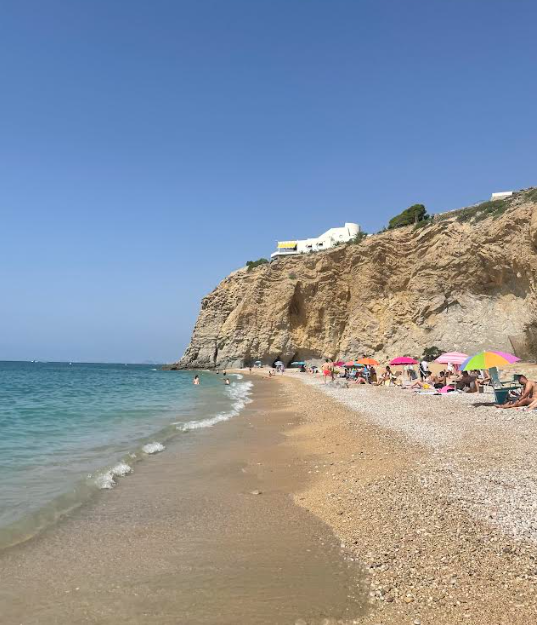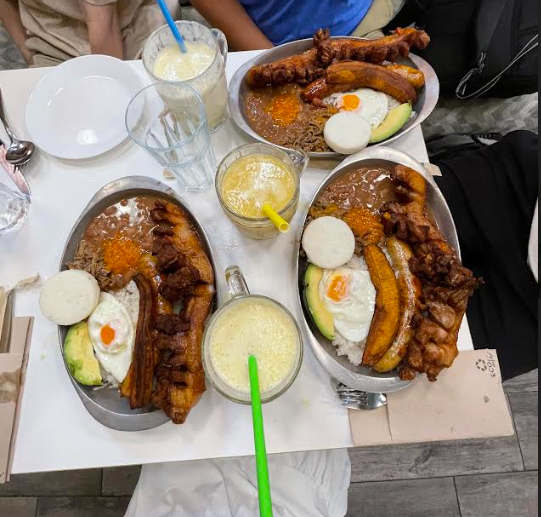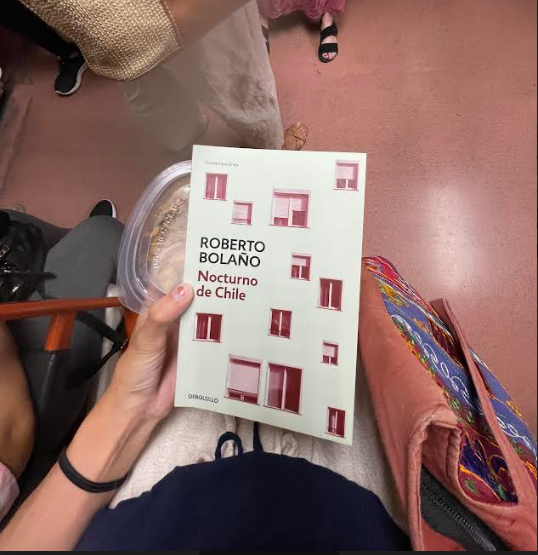
As an Eastern European, a historian of Eastern Europe, and a speaker of three Eastern European languages, it is impossible not to think about and see Russia’s war on Ukraine in everything. As an immigrant it is also impossible not to think about the migration effects of this war every time I meet a new person.
Alyona, my Russian teacher and a doctor of Slavic linguistics in Russian, Ukrainian, and Polish, hails from Komsomolsk on the Amura, a city in the Russian Far East, a seven-day train ride from Moscow and 24 hours from Vladivostok. She’s a dedicated expert teacher of all three languages whose dream it was to live and work in Ukraine—her first love. In January 2022 she was getting ready to leave her job in St. Petersburg and move to Ukraine. She had spent the past few months working on her CV and applying for university positions across the border. Yet, on the morning of February 24th 2022, it was the Russian army crossing the border into Ukraine, aiming to destroy, rather than academics like Alyona, who were hoping to build. Instead of Ukraine, Alyona picked Armenia, where, apart from teaching in the Russian Language Summer School, she teaches Ukrainian to Russian immigrants who want to build bridges with Ukrainian victims of Russian aggression in their own language.
Olena, a Ukrainian woman from Odesa, runs Dom Ukrainskyi/Ukrainian House—a charity focused on providing aid to war refugees from Ukraine. Unlike in many other places around Europe, the Armenian government provides no financial support for Ukrainian war refugees; the Ukrainian House is funded entirely by donations from the well-meaning public. In a past life, Olena was a professor of economics in Odesa, living Alyona’s dream life of working in higher education in Ukraine. When the Russian troops invaded Ukraine, she too picked Armenia as her home. Alyona and Olena met at the Ukrainian House, they’ve become close friends through their shared dedication to Ukraine and to peace, and they’re both building something powerful here in the basement of the Ukrainian House.
A Russian tourist in his fifties (we’ll call him Kolya) came to Armenia from Khabarovsk, only a few hours from Alyona’s hometown, and a place where she also lived for nine years. Armenia wasn’t Kolya’s first choice either. He initially wanted to travel to Southern Europe: Croatia, maybe Italy. But Russian tourists, those without much money that is, are not allowed in those places since the war began. So Kolya had to recalibrate, and eventually settled on Armenia. A school janitor from the Russian Far East, so far from the centre of Russian decision-making, he too feels the effects of the war. He has no internet or digital TV at home, only cable news: Russia One, RT, RIA Novisti, the greatest hits of Russian propaganda. But he’s very aware of it all, a curious, sensitive man—“teach me something Polish and something Ukrainian!” he asked me when we first met and I shared my vareniki and sour cream with him. He wrote everything I told him down in tiny cursive in a purple notebook. He asked me why I’m studying Russian and recommended me scores of Russian writers. Sergei Yesenin, he said, a great poet. “I’m no patriot,” he said when we were saying our goodbyes, gifting me a white, blue, and red ribbon.
***
During my first visit to the Ukrainian House I bought a necklace in the colors of the Ukrainian flag. During my last, I picked up three Russian books and carried them home in a blue and yellow knitted bag. The charity had to fight their building administration to keep the Ukrainian flag in their window, yet Russian flags are everywhere in the city, both on official and private buildings, just as Russian is heard on every street corner and in every shop—Ukrainian only a fragmentary distortion of the city’s aural scape. Most people here engage with Russian culture and history every day: free theatre performances of “Master and Margarita;” Russian expat performers playing in bars; Russian film screenings at the Armenian “Golden Apricot” Film Festival. Yet the majority don’t think about their love for all things Russian in any depth. The people who do are learning Ukrainian at the Ukrainian House.
***
“Moya liubimaya strana” or “my favorite country” is a new book by a daring and accomplished Russian journalist, formerly of Novaya Gazeta, Elena Kostiuchenko. The book has had difficulty finding a Russian publisher. “It’s too critical,” she said in a recent interview. The message of this book, too radical for regular Russian media, is that only love for your country can save it from fascist dictatorship. That loving your country means loud criticism—means fighting for it in the trenches, not with other peaceful nations but with those who want to shoot down all critical voices. That patriotism without loving criticism is fascism, and that Russia descended into it long ago. The way out, Kostiuchenko argues, is radical love. The premise reminds me of Svetlana Aleksievich’s “U voiny ne zhenskoe litso,” or “war has an unwomanly face” rendered in official English translation as “the unwomanly face of war” a translation which, in my opinion, lacks the power of the original grammatical construction. Aleksievich wrote about the suffering, dirt, death, and radical love that Soviet women gifted their country during World War II, when they worked as snipers, medics, drivers, radio liaisons. Ukraine has already gone through this radical love phase in 2014, during the Maidan Revolution of Dignity. Russia hasn’t. Not only that, but it is also punishing Ukraine for that radical love with war.
When Kolya said he’s no patriot he meant he does not support Russian aggression in Ukraine, and when he pressed the ribbon into my hand quoting Yesenin he meant he still loves Russia—just not yet radically.





